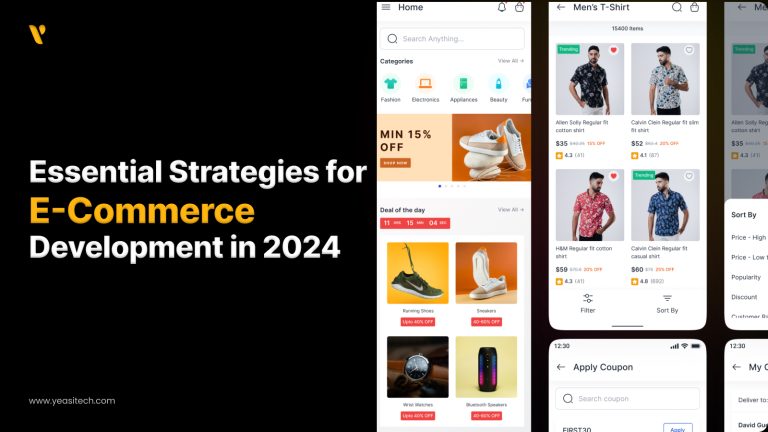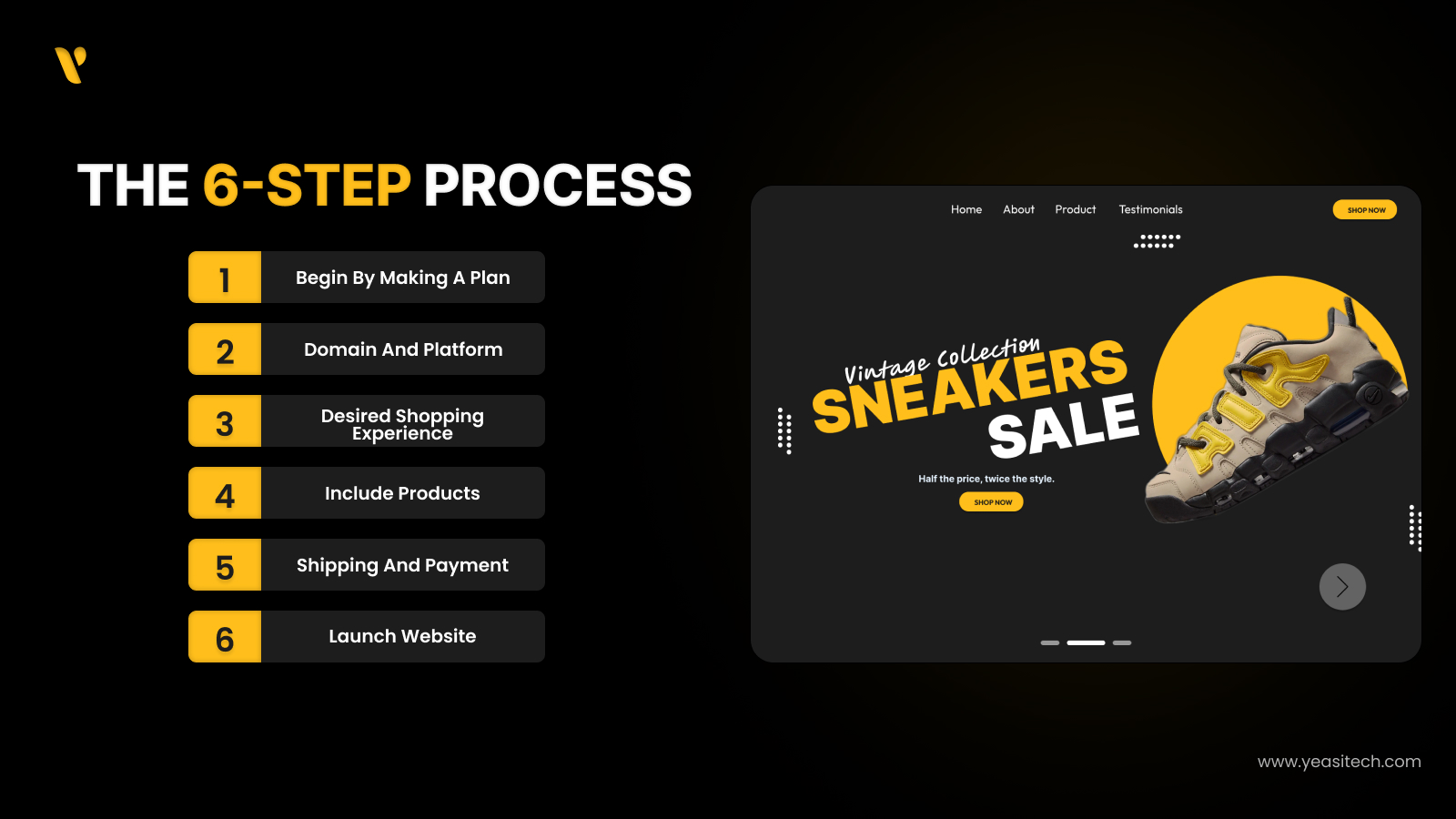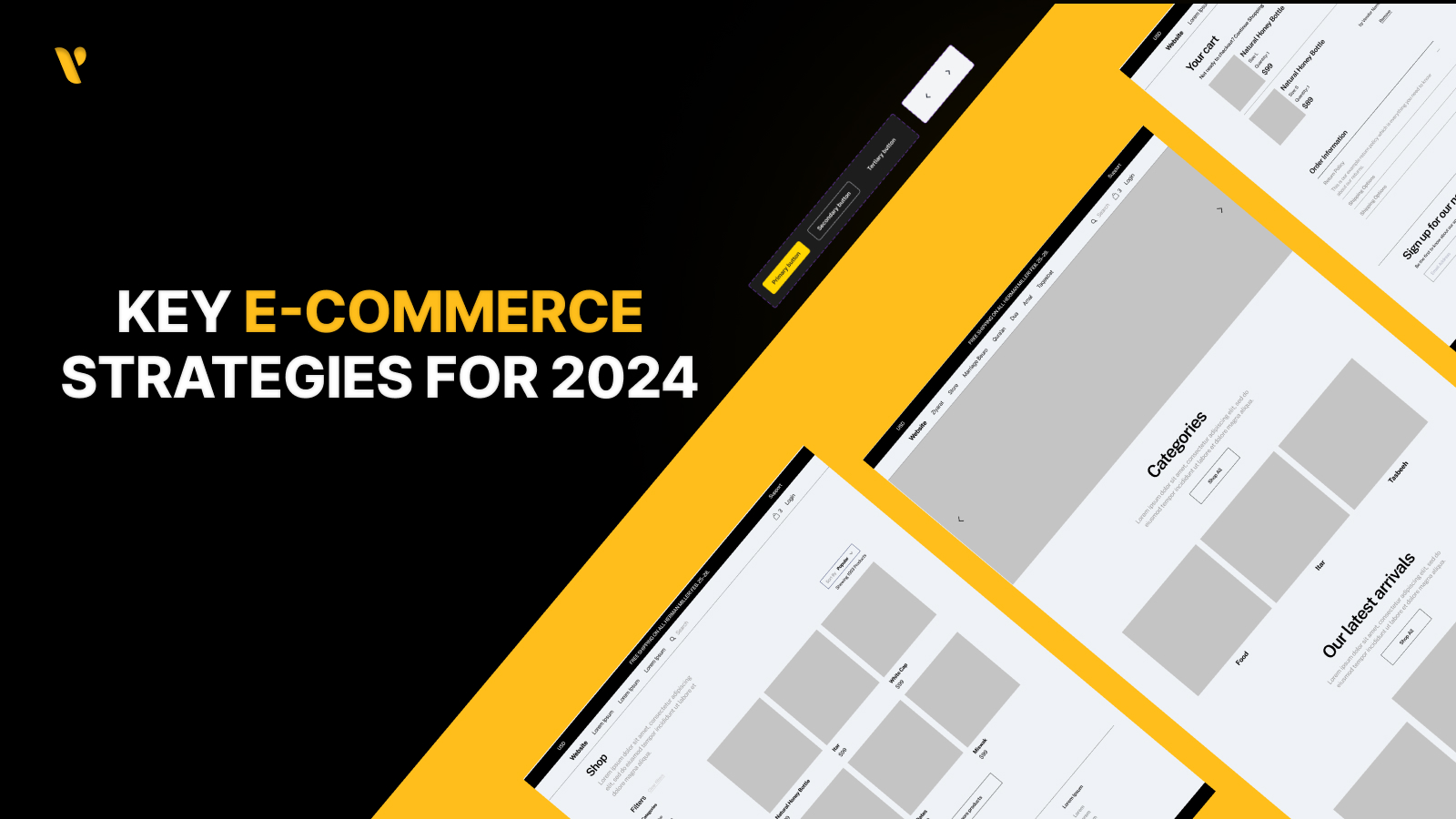What are The Essential Strategies for E-Commerce Development in 2025

One of the best platforms for earning money online is e-commerce development. One of the many benefits of launching an e-commerce website is that it can reach a larger market and have fewer starting and operating costs. Moreover, creating an online business is simple, even for people without technological experience. All you need is a domain name, a platform, and a dependable eCommerce hosting service.
By 2027, eCommerce sales worldwide are expected to surpass $8 trillion according to Statista. In 2020, they were $4.29 trillion, for comparison. eCommerce brands have enormous growth potential, yet many companies struggle to stay up to date. So how do you maintain your lead? Here are the finest strategies to make your eCommerce growth plan even better and guarantee your brand’s long-term success.
If you’re still worried about selling online, remember that opening an eCommerce store gives you a lot of freedom. Internet stores are simpler and less expensive to start because they don’t need physical locations. Let us look at the importance of e-commerce development and other motivators to begin selling products online.
In today’s digital world, e-commerce development is essential for several reasons:
For your business to achieve success, you must have an e-commerce website with secure payment processing, easy-to-use page navigation, and product discovery. Here are some further reasons why your company needs e-commerce web development:

Using e-commerce platforms, businesses may connect with customers anywhere in the entire world. Geographical restrictions are eliminated when you have an online business and potential clients from all over the world may access your items or services.
E-commerce websites are open 24/7, in contrast to traditional businesses that have set hours. Customers may purchase whenever they want because of this continuous availability, which boosts revenue and sales.
A company’s potential for sales can be greatly increased by having an internet presence. E-commerce platforms help businesses expand their consumer base and reach new markets by providing another sales channel.
The cost of setting up and maintaining an online business might be lower than that of running one in person. It makes inventory management more efficient, gets away with the demand for physical infrastructure, and requires less manpower.
Secure online payment gateways are incorporated into e-commerce platforms to provide safe and secure transactions. This increased trust will give customers greater confidence when making purchases online.
One aspect of e-commerce websites is their capacity to expand along with a business. The internet platform is easily upgraded and customizable to support more traffic and a larger product catalog as the firm expands.
E-commerce platforms are easily adaptable to changing market conditions. Businesses may update product information, adjust pricing, and implement marketing plans in real-time to adjust to shifting customer needs and market dynamics.
The ease of online buying is unparalleled for users. With the help of mobile devices, they can browse items and compare prices either at home or on the road.
When developing an e-commerce website, you don’t have to start from scratch. Setting up an internet business doesn’t need you to be extremely technical or proficient in coding, because of a variety of platforms.
However, there are other things you must do before beginning the development process, along with choosing your platform. Before you jump right in, take into account the following:

Making the choice to sell online is a major one. Also, until you understand the operating features, you are unable to take further action. Continue by understanding how it works. How come you want to sell things online? It’s simple to bring in more revenue. That being said, exactly how are you going to achieve it?
Consider e-commerce metrics when setting goals above your basic objectives.
Selecting a platform and domain for your e-commerce website comes next, when you have your plan in place. You should choose your domain name, or website URL, wisely. A brief, memorable domain name that reflects your brand is ideal.
A number of domain tools are also available to you, such Dot-o-Mator, which helps you choose a domain name by providing suggestions based on the keywords you provide.
Using an e-commerce development platform that can help you develop your website is another alternative. E-commerce development platforms let you build a website from the ground up that perfectly represents your business by providing customized choices and support. Wix, Shopify, and Squarespace are just a handful of the possibilities available to you.
What kind of online shopping experience would you like to provide to your clients? The following are just a few of the experiential elements you could want to think about:
Consider whether your target market prefers to explore your website for long periods and find new things, or if they prefer a quick and easy purchase experience, as they do with needs like some consumer-packaged goods. Depending on your response, you may want to design your website for a distinct consumer path.
Ensure that adding and editing product listings is a simple process for you and that your inventory is synchronized with all of your sales channels. You might avoid overselling your products and streamline back-office procedures by doing this.
You must focus on the following points when adding products:
A website developer may help with the checkout and shopping cart processes, as well as with setting up shipping and integrating payment methods into your website. Usually, you’ll have a wide selection of payment gateways.
Customers are more willing to pay using a variety of payment options, such as buy now, pay later, but you don’t have to integrate them all. Payment gateways that support your target areas should also be selected if you’re selling internationally.
Make sure you’re satisfied with the e-commerce website’s design, functionality, and navigation after you’ve moved it from the stage to production by giving it a quick test run. The following is an in-depth check list:
It’s important to ensure that the website of your business looks great on desktop and mobile devices and that the user experience is the same everywhere. If you have any Question or doubts you can Click Here.
The e-commerce development world is changing fast, and 2025 will bring big shifts. To stay ahead, businesses need to use strategies that match the latest trends and what customers want. Here are the key strategies for e-commerce development :

The user experience is essential for e-commerce to succeed. This requires more than just having a website that is responsive in 2025. Providing seamless, user-friendly, and customized purchasing experiences is the goal.
Customer satisfaction may be significantly increased through the use of AI for dynamic pricing and custom product suggestions. Also, as more people are buying on their phones, it is important that your website loads quickly and works well on mobile devices.
Shoppers expect a seamless experience whether they are doing their shopping on social media, in-store, or online. In order to provide a single purchasing experience across all sales channels, omnichannel strategies must be implemented by 2025.
This entails maintaining uniform customer service, promotions, and prices across all platforms. An simple to use customer journey may be achieved through the use of technology such as customer data platforms (CDPs).
Data in e-commerce development is valuable as gold. By 2025, organizations will have a deeper understanding of customer behavior, tastes, and trends because of the use of advanced data analytics. Businesses may increase growth and profit by using technologies like predictive analytics to make informed decisions about marketing, customer interaction, and inventory.
To increase the number of people that visit your online business, SEO is important. You may improve your website’s loading speed, provide understandable meta tags, and use relevant keywords on your product pages to raise its search engine ranks. Also, producing valuable material such as product guides, blogs, and customer reviews may draw in more visitors while improving the credibility of your website.
Offering top-notch customer service is crucial for keeping existing clients and attracting new ones. When several support channels, like phone, email, and live chat, are accessible, it is easier to handle problems fast. Also, keeping in touch with clients through customized emails, loyalty programs, and social media develops enduring relationships and keeps their commitment.
A successful web-based company depends on marketing. You can develop a connection with your target audience by using digital marketing techniques like pay-per-click advertisements, email campaigns, and social media. Customized advertising may increase client engagement and revenue by offering personalized suggestions or exclusive deals.
Careful planning, ongoing optimization, and a focus on the user experience are necessary for developing a successful e-commerce development platform. You can build a strong e-commerce website that draws users in and encourages them to return by putting these important strategies into practice. Staying ahead of trends and making adjustments as needed can guarantee long-term success in this highly competitive field as e-commerce develops.
Launching an e-commerce website allows you to reach a larger market, reduce startup and operational costs, and operate 24/7 without geographical limitations.
Select a platform based on your business needs, such as ease of use, scalability, customization options, and support. Popular options include Shopify, Wix, and Squarespace.
Focus on enhancing user experience (UX), adopting omnichannel strategies, leveraging data analytics, implementing effective SEO practices, and maintaining excellent customer support.
Stay updated on trends such as AI-driven personalization, mobile optimization, omnichannel retailing, advanced data analytics, and the integration of new payment methods.
Use secure payment gateways, ensure your website has an SSL certificate, regularly update software, and comply with industry standards for data protection.
YeasiTech is a trusted IT service partner with 8+ years of experience, empowering 250+ businesses with scalable web, mobile and AI solutions.
Explore related topics to broaden your understanding and gain actionable insights that can transform your strategies.